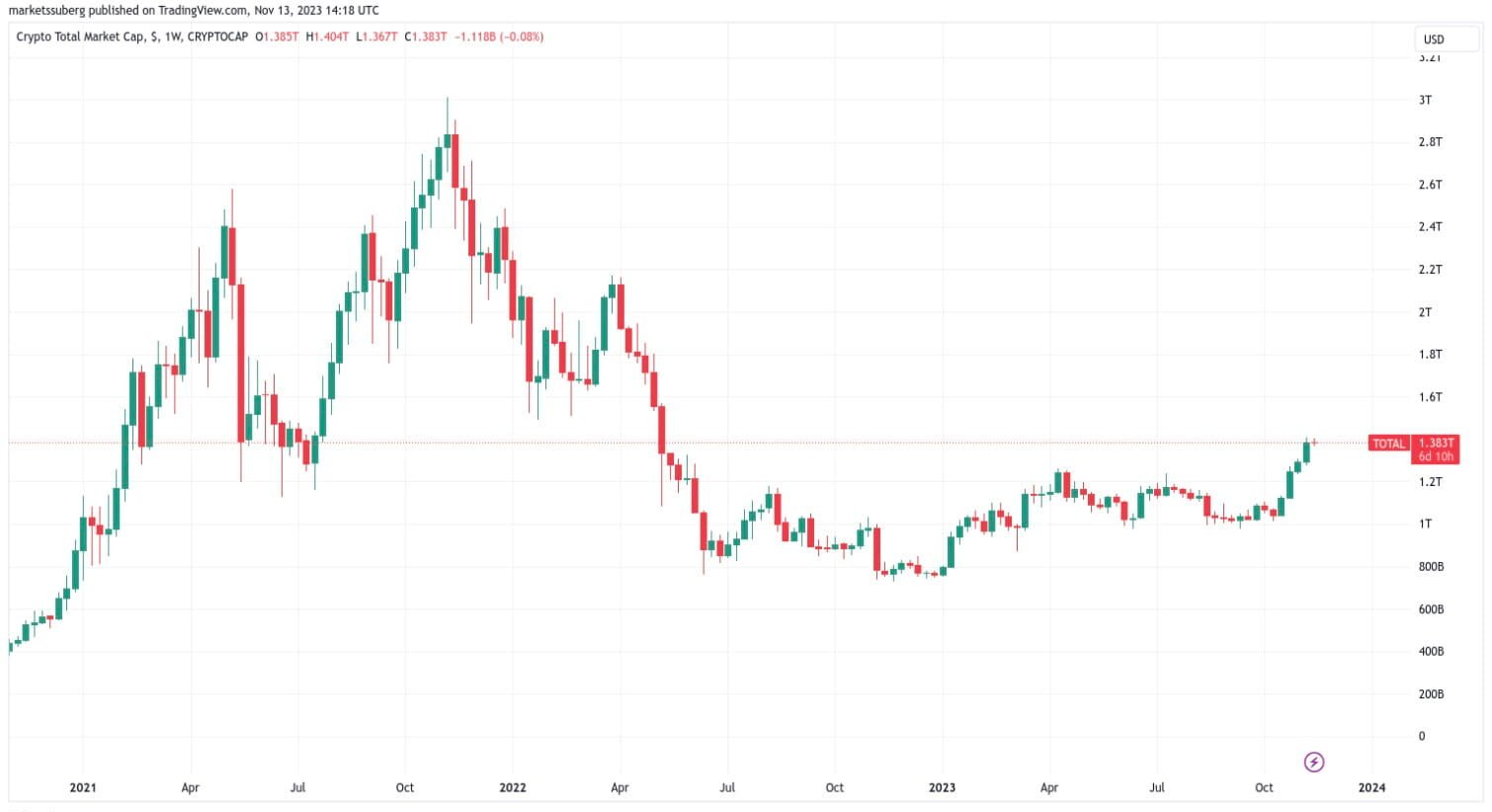Institutional cryptocurrency A recent poll by Coinbase in partnership with EY-Parthenon indicated that 83% of institutional investors. They are aiming to increase their cryptocurrency holdings in 2025. This trend shows how increasingly conventional financial institutions accept digital assets.
Institutional cryptocurrency The results indicate that institutions are growing confident in the potential of crypto assets. They see them as a vital part of their investment portfolios, a significant change from past years when digital assets were considered entirely speculative and dangerous.
Rising Institutional Confidence in Bitcoin
Data obtained in January 2025 from over 350 institutional investors reveals a strong surge of institutional confidence in the Bitcoin market. According to the statistics, almost three-quarters of participants own cryptocurrencies outside Bitcoin (BTC) and Ether (ETH). Institutional cryptocurrency This indicates that historically, more commonly in individual retail investment, institutional investors are diversifying their bitcoin holdings to include many altcoins. Moreover, 72% of institutions believe the bitcoin market offers attractive risk-adjusted returns over the next three years, which drives many to reallocate or increase their ownership of digital assets.

Moreover, 55% of the participants stated they want to invest at least 5% of their assets under management (AUM) into cryptocurrencies. These figures imply that institutional investors are progressively ready to commit more of their portfolios to digital currencies, which are now seen as an emerging asset class alongside conventional equities, bonds, and commodities.
Altcoins Gain Popularity
According to the study, one of the primary trends among institutional investors is the increasing popularity of altcoins. Although Bitcoin and Ether still hold the majority of institutional ownership among cryptocurrencies, altcoins including XRP (Ripple), Solana (SOL), and Cardano (ADA) are attracting a lot of interest. Many institutions are looking to these replacements for diversity and more significant profits. Though still unpredictable, these altcoins have development potential that Bitcoin and Ethereum do not cover.
Based on the poll, 45% of the respondents claimed to be holding altcoins in the prior year. This growing interest in cryptocurrencies reflects a more significant trend of diversification in the bitcoin domain. Altcoins are increasingly visible in investment plans as institutional investors investigate and develop their crypto portfolios. This increase in popularity also relates to the constant fluctuations in the altcoin market, many of which have garnered market cap and prominence over the previous several years.
Institutional Shift Toward Stablecoins
The Coinbase poll also reveals another interesting trend: institutional investors progressively embrace stablecoins and distributed finance (DeFi) platforms. Stablecoins, including USDT (Tether) and USDC (USD Coin), make up most institutional crypto investments nowadays. Remarkably, 84% of the respondents said they owned stablecoins or considered including them in their portfolios.
Among other uses in a market characterized by volatility, institutions are generating yield utilizing stablecoins (73%), internal cash management (68%), foreign exchange (69%), and payments (63%). Stablecoins allow businesses to enter the crypto market without absorbing all the volatility of conventional cryptocurrencies like Bitcoin. Risk-averse investors who wish for the advantages of blockchain technology but with the relative stability of a fiat money-backed token will find this incredibly enticing.
Regulatory Concerns in Crypto
Even if the crypto market attracts increasing attention, institutional investors’ key worries remain with regulatory uncertainties. More than half of the poll participants said regulations hampered their engagement in the crypto industry. Given that many institutional investors run under tight rules and are cautious about encountering regulatory hazards in the changing crypto scene, this is a crucial problem.
Still, most investors (68%) hoped that more regulatory clarity would encourage more institutional use of digital assets. Many organizations anticipate that authorities in big markets like the United States and Europe will produce clearer rules that would let cryptocurrencies be safely included in the conventional financial system. Recent legislative changes like possible Bitcoin ETFs and continuous attempts to implement better crypto tax rules have raised institutional trust in the field.
Institutional Crypto Growth
Institutional cryptocurrency investment has a relatively favorable overall picture. According to the Coinbase poll, 83% of institutions intend to raise their crypto allocations by 2025. They indicate a significant change in the view of cryptocurrencies from speculative investments to mainstream assets. The search for diversity, better returns, and the desire to participate in the innovation occurring in the digital asset area drive this change.

Driven by elements like better regulation, market maturation, and the creation of new financial instruments like altcoin ETFs, institutional participation in the Bitcoin ecosystem will probably continue increasing in the next years. The ongoing expansion of DeFi and the growing institutional use of stablecoins will further solidify cryptocurrencies as a permanent feature in conventional financial portfolios.
Final thoughts
The results of the EY-Parthenon and Coinbase surveys clearly show a fast-changing scene in institutional investing. 83% of institutions intend to raise their crypto allocation in 2025. Cryptocurrencies are no longer considered speculative assets but official parts of a diversified investment plan.
Digital assets are ready to become a future mainstay of the worldwide financial system. The future of cryptocurrencies appears bright as institutional interest keeps rising.


